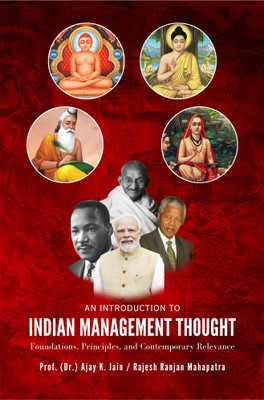An Introduction to Indian Management Thought - Foundations, Principles, and Contemporary Relevance(Paperback, Prof. Ajay K. Jain, Rajesh Ranjan Mahapatra)
Quick Overview
Product Price Comparison
"In today's rapidly changing global business environment, there is growing interest in exploring indigenous management philosophies that offer sustainable and holistic approaches to leadership and organizational management. Indian thought traditions, with their rich philosophical foundations and ethical principles, provide valuable insights into human behavior, motivation, emotional intelligence, and leadership effectiveness that complement modern management theories.This course introduces students to the fundamental principles and theories of Indian philosophical systems and their applications to contemporary management practices. The course examines key concepts such as Purusartha (human goals), Triguna (personality types), Karma Yoga (path of action), Anasakti (non-attachment), and principles from texts like the Bhagavad Gita, Mahabharata, Ramayana, Jain and Buddha philosophy to develop a comprehensive understanding of Indian approaches to management and leadership.By integrating traditional Indian wisdom with modern management concepts, students will develop a unique perspective on leadership, decision-making, conflict resolution, and organizational effectiveness that can be applied in diverse cultural and business contexts.Objectives:1.To understand the fundamental principles of Indian philosophical systems and their relevance to management practice2.To explore Indian theories of motivation, personality, emotional intelligence, and leadership3.To develop self-awareness and self-management techniques based on Indian thought systems4.To learn practical applications of Indian wisdom traditions in areas such as stress management, conflict resolution, and decision-making5.To integrate ethical principles from Indian thought into modern management practices6.To enhance leadership effectiveness through principles derived from Indian scriptures and philosophical traditions"


